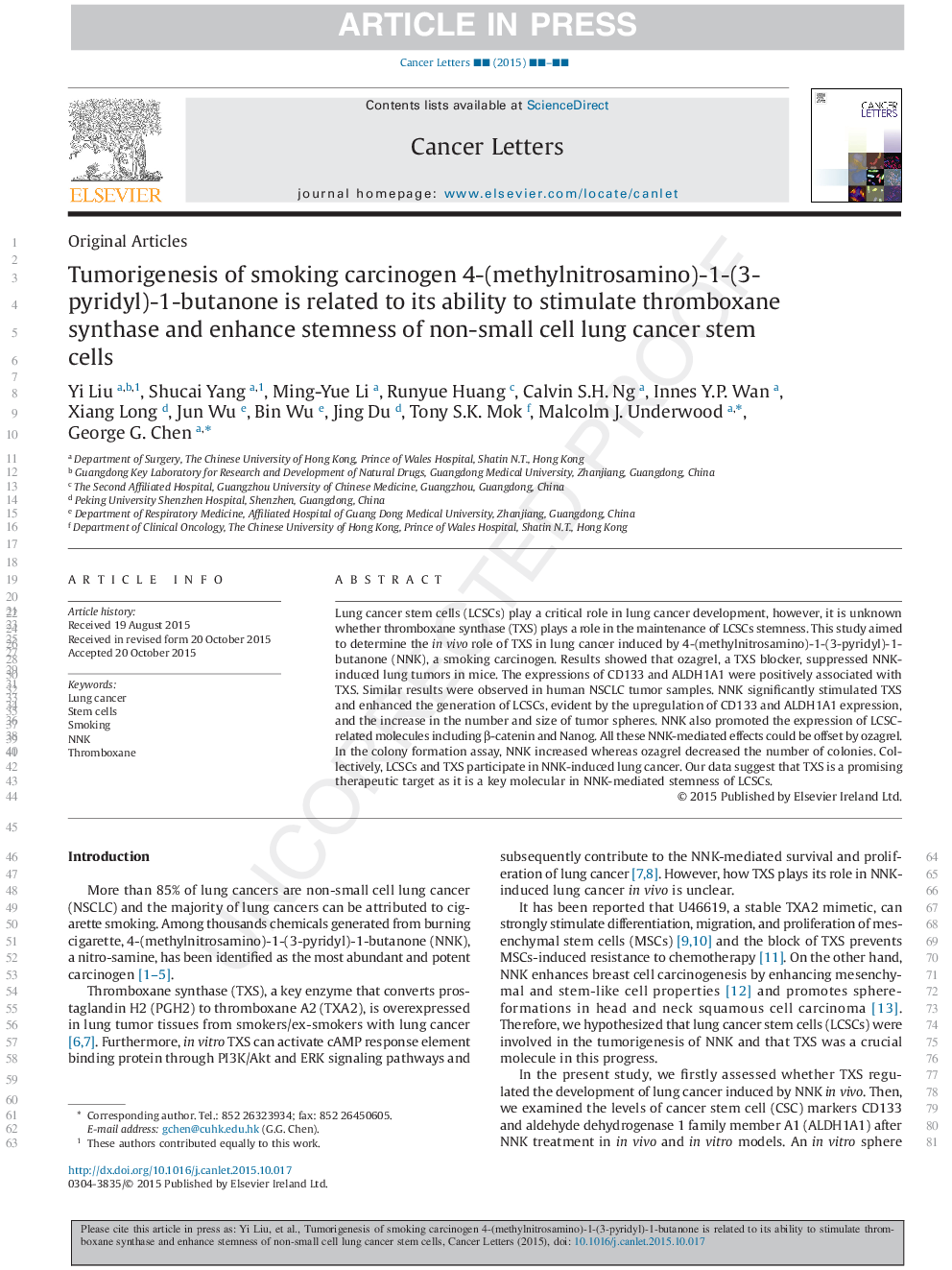| کد مقاله | کد نشریه | سال انتشار | مقاله انگلیسی | نسخه تمام متن |
|---|---|---|---|---|
| 8435389 | 1546687 | 2016 | 9 صفحه PDF | دانلود رایگان |
عنوان انگلیسی مقاله ISI
Tumorigenesis of smoking carcinogen 4-(methylnitrosamino)-1-(3-pyridyl)-1-butanone is related to its ability to stimulate thromboxane synthase and enhance stemness of non-small cell lung cancer stem cells
دانلود مقاله + سفارش ترجمه
دانلود مقاله ISI انگلیسی
رایگان برای ایرانیان
کلمات کلیدی
موضوعات مرتبط
علوم زیستی و بیوفناوری
بیوشیمی، ژنتیک و زیست شناسی مولکولی
تحقیقات سرطان
پیش نمایش صفحه اول مقاله

چکیده انگلیسی
Lung cancer stem cells (LCSCs) play a critical role in lung cancer development, however, it is unknown whether thromboxane synthase (TXS) plays a role in the maintenance of LCSCs stemness. This study aimed to determine the in vivo role of TXS in lung cancer induced by 4-(methylnitrosamino)-1-(3-pyridyl)-1-butanone (NNK), a smoking carcinogen. Results showed that ozagrel, a TXS blocker, suppressed NNK-induced lung tumors in mice. The expressions of CD133 and ALDH1A1 were positively associated with TXS. Similar results were observed in human NSCLC tumor samples. NNK significantly stimulated TXS and enhanced the generation of LCSCs, evident by the upregulation of CD133 and ALDH1A1 expression, and the increase in the number and size of tumor spheres. NNK also promoted the expression of LCSC-related molecules including β-catenin and Nanog. All these NNK-mediated effects could be offset by ozagrel. In the colony formation assay, NNK increased whereas ozagrel decreased the number of colonies. Collectively, LCSCs and TXS participate in NNK-induced lung cancer. Our data suggest that TXS is a promising therapeutic target as it is a key molecular in NNK-mediated stemness of LCSCs.
ناشر
Database: Elsevier - ScienceDirect (ساینس دایرکت)
Journal: Cancer Letters - Volume 370, Issue 2, 28 January 2016, Pages 198-206
Journal: Cancer Letters - Volume 370, Issue 2, 28 January 2016, Pages 198-206
نویسندگان
Yi Liu, Shucai Yang, Ming-Yue Li, Runyue Huang, Calvin S.H. Ng, Innes Y.P. Wan, Xiang Long, Jun Wu, Bin Wu, Jing Du, Tony S.K. Mok, Malcolm J. Underwood, George G. Chen,